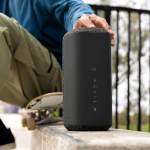If you develop software for a large enterprise company, chances are you’ve heard of Tricentis. If you don’t develop software for a large enterprise company, chances are you haven’t. The software testing company with a focus on modern cloud and enterprise applications was founded in Austria in 2007 and grew from a small consulting firm to a major player in this field, with customers like Allianz, BMW, Starbucks, Deutsche Bank, Toyota and UBS. In 2017, the company raised a $165 million Series B round led by Insight Venture Partners.
Today, Tricentis announced that it has acquired Neotys, a popular performance testing service with a focus on modern enterprise applications and a tests-as-code philosophy. The two companies did not disclose the price of the acquisition. France-based Neotys launched in 2005 and raised about €3 million before the acquisition. Today, it has about 600 customers for its NeoLoad platform. These include BNP Paribas, Dell, Lufthansa, McKesson and TechCrunch’s own corporate parent, Verizon.
As Tricentis CEO Sandeep Johri noted, testing tools were traditionally script-based, which also meant they were very fragile whenever an application changed. Early on, Tricentis introduced a low-code tool that made the automation process both easier and resilient. Now, as even traditional enterprises move to DevOps and release code at a faster speed than ever before, testing is becoming both more important and harder for these companies to implement.
“You have to have automation and you cannot have it be fragile, where it breaks, because then you spend as much time fixing the automation as you do testing the software,” Johri said. “Our core differentiator was the fact that we were a low-code, model-based automation engine. That’s what allowed us to go from $6 million in recurring revenue eight years ago to $200 million this year.”
Tricentis, he added, wants to be the testing platform of choice for large enterprises. “We want to make sure we do everything that a customer would need, from a testing perspective, end to end. Automation, test management, test data, test case design,” he said.
The acquisition of Neotys allows the company to expand this portfolio by adding load and performance testing as well. It’s one thing to do the standard kind of functional testing that Tricentis already did before launching an update, but once an application goes into production, load and performance testing becomes critical as well.
“Before you put it into production — or before you deploy it — you need to make sure that your application not only works as you expect it, you need to make sure that it can handle the workload and that it has acceptable performance,” Johri noted. “That’s where load and performance testing comes in and that’s why we acquired Neotys. We have some capability there, but that was primarily focused on the developers. But we needed something that would allow us to do end-to-end performance testing and load testing.”
The two companies already had an existing partnership and had integrated their tools before the acquisition — and many of its customers were already using both tools, too.
“We are looking forward to joining Tricentis, the industry leader in continuous testing,” said Thibaud Bussière, president and co-founder at Neotys. “Today’s Agile and DevOps teams are looking for ways to be more strategic and eliminate manual tasks and implement automated solutions to work more efficiently and effectively. As part of Tricentis, we’ll be able to eliminate laborious testing tasks to allow teams to focus on high-value analysis and performance engineering.”
NeoLoad will continue to exist as a stand-alone product, but users will likely see deeper integrations with Tricentis’ existing tools over time, include Tricentis Analytics, for example.
Johri tells me that he considers Tricentis one of the “best kept secrets in Silicon Valley” because the company not only started out in Europe (even though its headquarters is now in Silicon Valley) but also because it hasn’t raised a lot of venture rounds over the years. But that’s very much in line with Johri’s philosophy of building a company.
“A lot of Silicon Valley tends to pay attention only when you raise money,” he told me. “I actually think every time you raise money, you’re diluting yourself and everybody else. So if you can succeed without raising too much money, that’s the best thing. We feel pretty good that we have been very capital efficient and now we’re recognized as a leader in the category — which is a huge category with $30 billion spend in the category. So we’re feeling pretty good about it.”
Powered by WPeMatico






